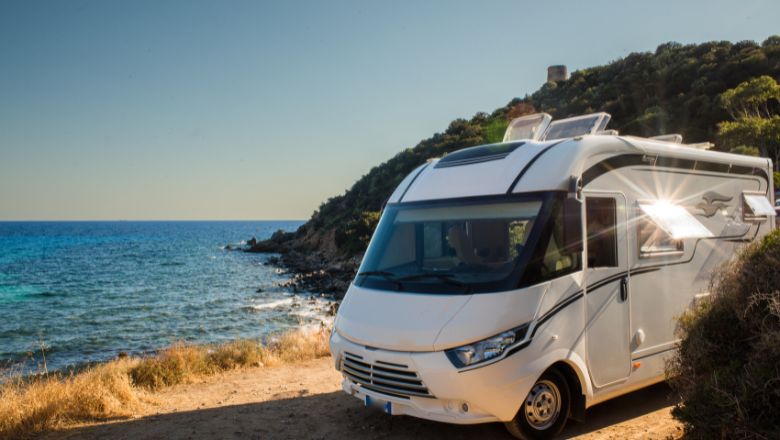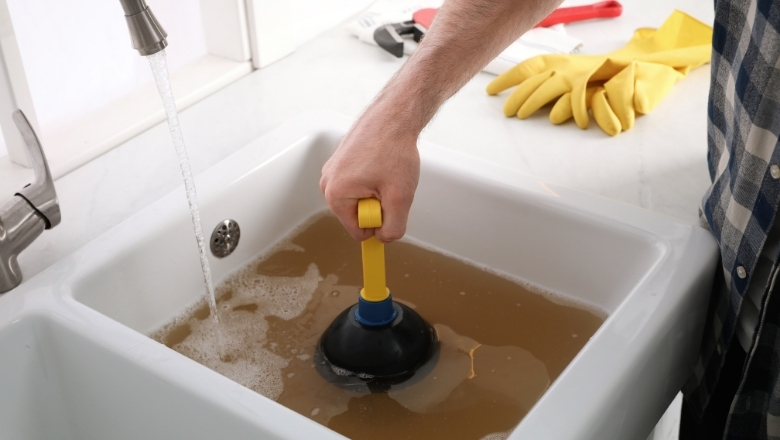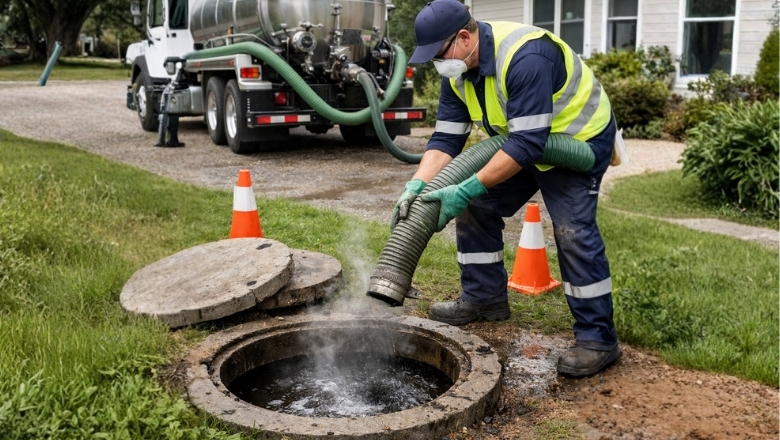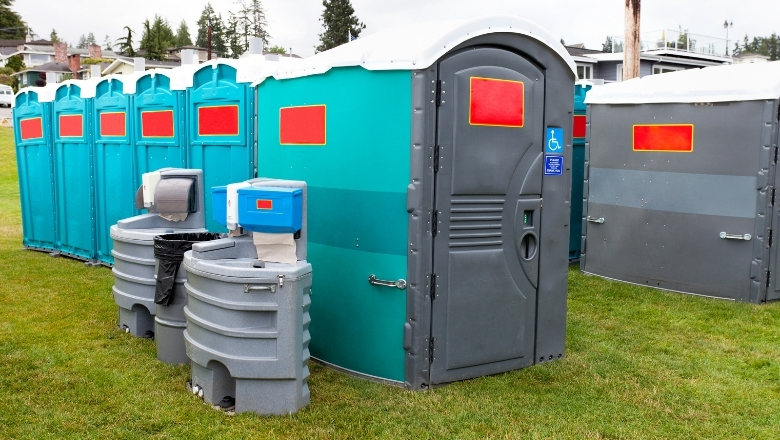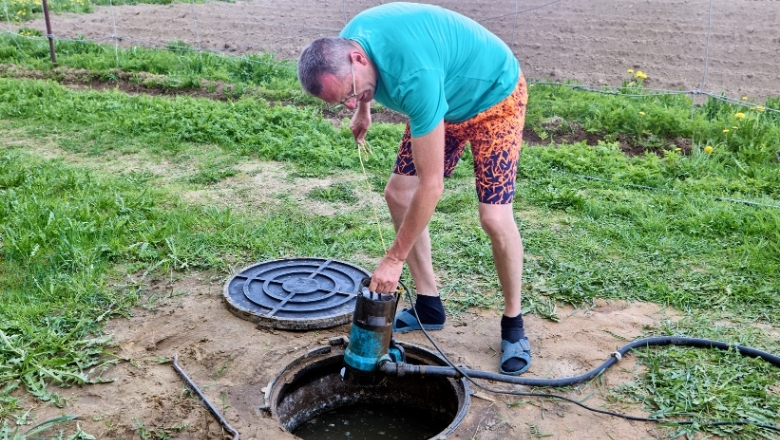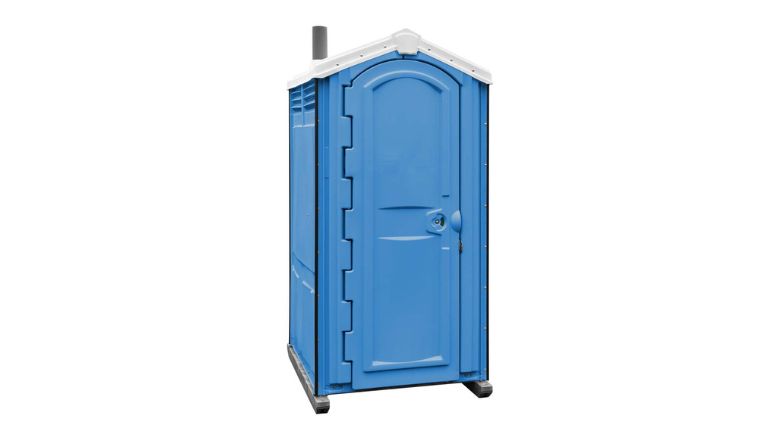Idaho’s scenic highways, alpine lakes, and starlit campgrounds make it one of the best places to explore by RV. Whether you’re circling Craters of the Moon or parked at Bear Lake, one thing unites all RVers during summer: the need to manage your RV waste tanks smartly. Because nothing—and we mean nothing—kills the joy of a road trip faster than an overflowing black tank.
If you’re traveling through destinations like Idaho Falls, Twin Falls, Rigby, Montpelier, or surrounding locations, having a clear plan for RV pumping isn’t just helpful—it’s a dire necessity. Luckily, MVP Rentals offers mobile RV pumping and septic services in the southeastern Idaho region—delivering timely and efficient service exactly when you need it most.
This blog unpacks the how, when, and why of RV septic tank pumping frequency, helping you plan better, travel cleaner, and avoid costly—or gross—mistakes.
Understanding Your RV Waste Tanks: The Basics Behind the Flush
The Unsung Duo: Black vs. Grey Water Tanks
RV waste management revolves around two types of tanks:
1) Black water tank:
Stores sewage from your toilet. According to the top RV pumping experts in Montpelier, ID, this tank fills more slowly but requires strict management due to its odor and potential for contamination.
2) Grey water tank:
Collects used water from sinks, showers, and washing activities. It fills up faster, especially when used by large families or those who frequently cook, shower, and clean.
The critical difference? Black water must always be emptied before grey water—the latter helps rinse your hose, keeping your hands (and your RV) cleaner.
How Big Are These Tanks Anyway?
Holding capacity varies depending on your RV type, but here’s a general breakdown:
| RV Size | Black Tank | Grey Tank |
| Small Camper | 15–25 gal | 20–30 gal |
| Mid-Size RV | 30–45 gal | 40–60 gal |
| Large RV | 50+ gal | 70+ gal |
Tip: The most popular RV pumping and septic service experts in Pocatello reveal that while most RV tank sensors can be helpful, they’re not always reliable. Even buildup or residue can cause false readings. That’s why combining sensor data with a manual visual check is the best approach for achieving accuracy.
What Impacts Your Pumping Frequency?
Scheduling RV pumping in Rigby, Rexburg, or any other Idaho destination depends on more than just your tank size. After all, real-life use factors weigh in heavily.
Family Size and Travel Duration
The more people you’re traveling with, the faster your tanks will fill up. Here’s a quick guide:
- Solo or Couple (2 people): Pump every 5–7 days
- Family of 3–4: Pump every 2–3 days
- Group of 5+: Consider daily checks and every other day pumping
Camping for just a weekend? A single pump before you hit the road might suffice. However, if you’re staying longer, plan ahead.
Usage Habits: Showers, Meals, and Flushes
Even among groups of the same size, waste habits differ. Ask yourself:
- Do you cook every meal in the RV?
- Do kids take daily showers or run the tap while brushing their teeth?
- Are you flushing toilet paper or using a separate trash container?
Answering “yes” to any of these means your tanks will fill faster. Knowing your best RV waste disposal routine means being honest about how you live on the road.
Summer Heat and Its Surprising Effects
The hotter it gets, the faster odors develop—and gases expand. In places like Pocatello or Twin Falls, this is a real RV pumping concern.
- High heat = accelerated waste breakdown
- Warm tanks emit stronger odors even when half-full
- Gas buildup can distort sensor readings
What is your best strategy? Don’t let tanks hit full capacity. Instead, schedule RV pumping and septic service in Twin Falls, Idaho Falls, and surrounding locations at 70–80% full for maximum efficiency and freshness.
Where Idahoans Love to Camp—and What That Means for Your Tanks
Most Popular Summer RV Destinations
Idaho’s top RV sites fill up quickly in the summer. Some of these include:
- Bear Lake (Montpelier region)
- Henry’s Lake (Rexburg area)
- Shoshone Falls RV Park (Twin Falls)
- Snake River Greenbelt (Idaho Falls)
With crowds come backups—at dump stations, service areas, and even supply stores. According to the top RV pumping and septic service contractors in Montpelier, ID, relying solely on campground dump sites during summer is risky. Many fill up or close early in the day.
Mobile Support: Where MVP Rentals Has You Covered
Unlike seasonal or overbooked park facilities, MVP Rentals offers year-round RV pumping in Idaho Falls, Montpelier ID, Pocatello, Rexburg, Rigby, and Twin Falls—delivering mobile pumping services exactly where you need them.
Creating a Smart Pumping Schedule
Don’t Rely on Sensors Alone
Sensor accuracy varies. Here’s how you can stay ahead:
- Check tanks every morning and night
- Use clear elbow adapters on your hose for visual confirmation
- Listen for sluggish drainage (a sign it’s time)
Why Booking Early Matters
During summer, septic service in Idaho Falls and other high-traffic areas books up fast. Avoid emergencies by:
- Booking 48 hours in advance
- Coordinating pump-outs after every long driving day
- Staggering bookings for multiple rigs traveling together
Avoid the Risk of Overflow
According to the top RV pumping and septic service experts in Rexburg, overfilled tanks don’t just smell—they damage your system.
| Overflow Risk | Consequences |
| Black tank overfull | Sewage backup into RV |
| Grey tank overflow | Water damage under floors |
| Sensor blockages | Misleading readings and clogs |
Prevention starts with good scheduling and trusted professionals like MVP Rentals—your safety net on Idaho’s open roads.
Eco-Friendly RV Waste Management
Choosing Biodegradable Treatments
Top RV pumping and septic service experts in Rigby reveal that using tank-safe treatments is not only better for your RV but also for Idaho’s environment. Look for:
- Enzyme-based tank cleaners (as they digest waste naturally)
- Non-toxic deodorizers (can help prevent odor without chemicals)
- Breakdown-friendly toilet paper (approved for RV systems)
Smart Greywater Disposal
According to the leading septic service experts in Idaho Falls, although greywater is less hazardous, its disposal is regulated. In Idaho, never dump greywater outside designated stations unless explicitly allowed by campground policy.
If allowed:
- Use it to wash your vehicle tires
- Pre-rinse gear like boots or bikes
- Cool dusty surfaces near your RV
When in doubt—pump it out legally with licensed providers like MVP Rentals.
Wrapping It All Up: Your Waste Plan Should Travel With You
Think of your RV waste schedule like your route map—it shifts with each destination, yet the principles stay grounded. Knowing your RV septic tank pumping frequency, recognizing accurate tank fill indicators, and being aware of overfilled RV tank risks can mean the difference between a smooth trip and a messy setback.
Whether you’re planning your next adventure using a solid RV trip preparation checklist or simply seeking the best RV waste disposal routine, being proactive about your pumping needs is essential for responsible RV travel. From understanding how often to empty your RV black tank to choosing biodegradable tank treatments and embracing eco-friendly RV dumping, smart choices matter—especially during peak season.
So, if you’re navigating RV septic system maintenance in Idaho, seeking RV camping waste solutions, or wondering where to dump RV waste legally in Idaho, know that trusted local RV waste removal services are just a call away.
Need dependable RV pumping and septic service in Idaho Falls, Montpelier, Rigby, Rexburg, Twin Falls, Pocatello, and neighboring areas?
Let MVP Rentals take the dirty work off your plate—so you can focus on the moments that truly matter.
Contact us at 208‑529‑9916 to schedule your next service.
FAQs
1) How do I know when my RV holding tank is full?
Use tank sensors for rough estimates but confirm with visual checks or by monitoring flush slowdowns.
2) What’s the average duration between RV pump-outs for a family of four?
Every 2–3 days during peak summer is recommended, especially if you cook and shower regularly.
3) How can I prevent odors between RV pump-outs?
Flush tanks with clean water regularly and use biodegradable, RV-safe odor treatments.
4) What’s the difference between grey and black water tanks?
Grey water includes a sink and shower runoff; black water contains toilet waste and needs stricter handling.
5) Are there mobile RV pumping services near Twin Falls and Rexburg?
Yes—MVP Rentals offers reliable mobile RV pumping throughout Twin Falls, Rexburg, and nearby areas.

